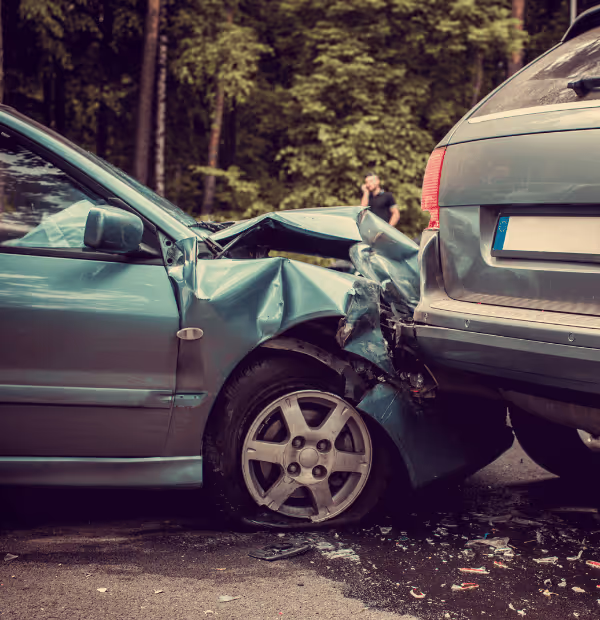Negligent driving causing grievous bodily harm

Expert Legal Defence for Negligent Driving Occasioning Grievous Bodily Harm Offence
Being accused of Negligent Driving Occasioning Grievous Bodily Harm (GBH) can be life changing. These charges involve allegations that your manner of driving fell below the expected standard and caused another person serious injury. If convicted, you face not only the loss of your licence but also the possibility of a criminal record and imprisonment.
Detailed description:
- Courts treat negligent driving occasioning GBH very seriously, with penalties including up to 12 months imprisonment for repeat offenders.
- The law does not require intent, only that your negligent driving caused grievous bodily harm.
- Defending these charges requires careful examination of the evidence, including whether your driving was truly negligent and whether it directly caused the injury.
At Brightstone Defence Criminal Lawyers, we have extensive experience defending clients facing serious traffic and driving charges across NSW. Our lawyers understand the complexities of these matters and will fight to protect your rights, minimise penalties, and help you achieve the best possible outcome.
What is Negligent Driving Causing Grievous Bodily Harm?
Negligent Driving Occasioning Grievous Bodily Harm (GBH) is a serious traffic offence in New South Wales governed by Section 117(1) of the Road Transport Act 2013 (NSW). It applies when a person drives a motor vehicle in a way that falls below the standard expected of a reasonable driver, and their negligent driving causes serious injury (grievous bodily harm) to another person. While it does not require intentional harm, it carries significant legal consequences due to the severity of injury caused.
The offences of negligent driving causing death and negligent driving causing grievous bodily harm are considered more serious than simple negligent driving. You may face these charges if your negligent driving leads to the death or serious injury of another person.
- Grievous bodily harm (GBH) refers to severe or permanent injuries, which can include broken bones, burns, or significant scarring.
- Negligent driving happens when a person operates a motor vehicle without exercising the level of care that a reasonable and prudent driver would in similar circumstances.
Relevant Factors
When determining whether negligent driving has occurred, the court will take into account all relevant factors surrounding the incident, including:
- The condition and state of the road
- The volume and flow of traffic at the time
- Any hazards present on the road, such as immobile vehicles, emergency responders, or debris
Elements the Prosecution Must Prove
To secure a conviction, the prosecution must prove beyond reasonable doubt that:
- The accused was driving a motor vehicle on a road or road-related area.
- The driving was negligent, meaning the accused failed to exercise the standard of care that a reasonable driver would under the same circumstances. This could include distracted driving, speeding, failing to keep proper lookout, or disregarding traffic rules.
- The negligent driving caused grievous bodily harm to another person. The injury must be serious, such as broken bones, deep wounds, or permanent disability.
- There is a link between negligent driving and the injury sustained.
It is important to note that the prosecution does not need to prove intent, only negligence and causation.
Possible Defences
Being charged with negligent driving causing serious injury or death is serious, but there are several legal defences that may apply depending on the facts of the case. Some common defences include:
- Lack of negligence
The prosecution must prove that your driving fell below the standard expected of a reasonable driver. You can argue that you exercised the proper care and attention, and that the incident was caused by factors beyond your control or due to the actions of another party.
- Causation
It must be shown that your negligent driving directly caused the injury or death. If you can prove the harm was caused by an unrelated event, such as a pre-existing medical condition, another driver’s actions, or unforeseeable circumstances, you may avoid liability.
- Sudden Medical Emergency
If you experienced an unexpected medical condition (like a seizure, heart attack, or stroke) while driving, which made you lose control of the vehicle, this can be a defence if it was unforeseeable and unavoidable.
- Mistaken Identity
In rare cases, the accused may not have been the driver responsible for the incident. Proving mistaken identity or lack of evidence that you were driving can be a valid defence.
- Mechanical Failure
In even rarer cases, where the vehicle suffered a sudden mechanical fault that caused the accident, and you had no reasonable way to anticipate or prevent it, this may reduce or eliminate your liability.
However, it is immensely important to note that each case is unique, so it is important to consult with an experienced lawyer who can assess the evidence and advise on the most appropriate defence strategy for your situation.
Potential Penalties
Negligent driving occasioning grievous bodily harm carries serious penalties under NSW law. The court will consider factors such as the seriousness of the injury, the level of negligence, whether alcohol or drugs were involved, and the offender’s driving history.

Legal Process
& Options
Facing a charge of negligent driving occasioning grievous bodily harm is extremely serious, with potentially life altering consequences. Having a skilled lawyer by your side can make a critical difference to your outcome.
Pleading
Not Guilty
If the accused pleads not guilty, the case will proceed to a defended hearing where the prosecution must prove the offence beyond reasonable doubt. The defence may challenge evidence, question witnesses, and argue that the accused’s actions did not meet the legal definition of negligence or that the injury was not caused by the driving.
Pleading
Guilty
Pleading guilty to negligent driving occasioning grievous bodily harm demonstrates acceptance of responsibility and may result in a reduced sentence.
During sentencing, your lawyer will present supporting evidence such as:
- Character references
- Evidence of rehabilitation or remorse
- Medical or psychological reports
- Personal circumstances impacting sentencing
The court will balance these factors with the seriousness of the offence and the harm caused. Options may include imprisonment, fines, disqualification from driving, or community-based orders.
Negligent Driving is a traffic offence under section 117(1)(a) of the Road Transport Act 2013 (NSW). It occurs when a driver fails to take reasonable care while operating a vehicle, even if their actions do not cause injury or death. This is the least serious form of negligent driving, compared to:
Possibly. While there is no automatic disqualification for negligent driving not causing injury, a magistrate can:
- Disqualify your licence
- Issue a conditional discharge
- Impose a conviction with a fine and/or good behaviour bond
The outcome depends on the seriousness of the negligence and your driving history. This is a summary offence, and the court has discretion to record a conviction. If convicted, it can appear on your criminal record, which may affect employment or visa applications.
However, courts may choose to deal with the offence under section 10 of the Crimes (Sentencing Procedure) Act 1999 — dismissing the charge without recording a conviction, especially if:
- You have a clean driving history
- The negligence was minor
- You show remorse and have mitigating circumstances
Yes, but it is treated as a traffic offence, not an indictable crime. A conviction can still be recorded, which may have legal consequences, including affecting your:
- Driving privileges
- Employment (especially if driving-related)
- Travel to countries with strict entry requirements
While facing a Negligent Driving charge, your licence may be restricted or suspended, especially during bail or court proceedings.
Seeking legal advice promptly can help you understand if you are eligible for a temporary licence or other arrangements.
This offence occurs when a person drives a motor vehicle negligently, and that driving causes grievous bodily harm (GBH) to another person. It is covered under section 117(1)(b) of the Road Transport Act 2013 (NSW).
Negligence means a failure to take proper care while driving, falling below the standard expected of a reasonable driver. It does not require recklessness or intent, just carelessness or inattention.
Examples may include:
- Driving while fatigued or distracted (e.g., using a phone)
- Failing to give way or stop at a red light
- Not adjusting to road or weather conditions
- Speeding or tailgating
Yes. Jail time is a possible penalty, especially if the incident involved:
- Aggravating factors (e.g., high speed, alcohol or drug use)
- A history of poor driving
- Multiple victims or severe injury
However, imprisonment is not mandatory, and courts may impose alternative sentences like community correction orders or intensive corrections orders, depending on the circumstances.
- Yes. Dangerous Driving Occasioning GBH (under s52A of the Crimes Act 1900) is a more serious criminal offence, requiring proof of objectively dangerous driving and involving harsher penalties (including mandatory imprisonment).
- Negligent Driving Occasioning GBH is generally viewed as less severe and handled under the Road Transport Act.
Strong evidence is crucial in these cases. This may include:
- Photos or videos of the accident scene
- Witness statements
- Dashcam footage or GPS data from your vehicle
- Medical reports or expert opinions
These materials can help your lawyer demonstrate whether your driving met the standard of a reasonable driver or whether the injury was directly caused by your driving.
Negligent Driving Occasioning Death is a criminal traffic offence under section 117(1)(c) of the Road Transport Act 2013 (NSW). It occurs when a driver operates a vehicle negligently and, as a result, causes the death of another person.
"Negligent driving" refers to a failure to exercise the standard of care expected of a reasonable driver in the circumstances. It does not require intent or recklessness, only carelessness or inattention that falls below the standard of a competent driver.
Negligence may include:
- Failing to keep a proper lookout
- Driving too fast for the conditions
- Not giving way or failing to obey traffic signals
- Being distracted (e.g. by a mobile phone)
- Yes. Although jail is not mandatory, courts have the discretion to impose a custodial sentence, especially in more serious cases or where aggravating factors are present.
- Courts often consider general deterrence and the seriousness of the consequences.
- No. Dangerous Driving Occasioning Death (under s52A of the Crimes Act 1900) is a more serious criminal offence and involves driving that is objectively dangerous, not merely negligent. It also carries harsher penalties, including mandatory imprisonment. Negligent Driving Occasioning Death is seen as less serious but still a grave offence.
- Yes. Upon conviction, disqualification is automatic. However, the court may reduce the disqualification period to the legislated minimum depending on the circumstances.
- You may also be subject to an interlock order following the disqualification period, particularly if alcohol or drugs were involved.
- Yes. A conviction for this offence results in a criminal record, unless the court exercises its discretion under section 10 of the Crimes (Sentencing Procedure) Act 1999 to dismiss the charge without recording a conviction, which is rare in such serious cases.
Having an experienced traffic or criminal lawyer ensures that the accused understands their rights, the process, and the possible outcomes. Given the risk of imprisonment, licence disqualification, and long-term consequences of a conviction, getting legal advice early is vital to securing the best possible result.
- Contact Brightstone Defence Criminal Lawyers for immediate advice and support to protect your rights and explore the best defence strategy.
While facing a Negligent Driving charge, your licence may be restricted or suspended, especially during bail or court proceedings.
Seeking legal advice promptly can help you understand if you are eligible for a temporary licence or other arrangements.
This offence occurs when a person drives a motor vehicle negligently, and that driving causes grievous bodily harm (GBH) to another person. It is covered under section 117(1)(b) of the Road Transport Act 2013 (NSW).
Negligence means a failure to take proper care while driving, falling below the standard expected of a reasonable driver. It does not require recklessness or intent, just carelessness or inattention.
Examples may include:
- Driving while fatigued or distracted (e.g., using a phone)
- Failing to give way or stop at a red light
- Not adjusting to road or weather conditions
- Speeding or tailgating
Yes. Jail time is a possible penalty, especially if the incident involved:
- Aggravating factors (e.g., high speed, alcohol or drug use)
- A history of poor driving
- Multiple victims or severe injury
However, imprisonment is not mandatory, and courts may impose alternative sentences like community correction orders or intensive corrections orders, depending on the circumstances.
- Yes. Dangerous Driving Occasioning GBH (under s52A of the Crimes Act 1900) is a more serious criminal offence, requiring proof of objectively dangerous driving and involving harsher penalties (including mandatory imprisonment).
- Negligent Driving Occasioning GBH is generally viewed as less severe and handled under the Road Transport Act.
Strong evidence is crucial in these cases. This may include:
- Photos or videos of the accident scene
- Witness statements
- Dashcam footage or GPS data from your vehicle
- Medical reports or expert opinions
These materials can help your lawyer demonstrate whether your driving met the standard of a reasonable driver or whether the injury was directly caused by your driving.
- Yes. Upon conviction, disqualification is automatic. However, the court may reduce the disqualification period to the legislated minimum depending on the circumstances.
- You may also be subject to an interlock order following the disqualification period, particularly if alcohol or drugs were involved.
Having an experienced traffic or criminal lawyer ensures that the accused understands their rights, the process, and the possible outcomes. Given the risk of imprisonment, licence disqualification, and long-term consequences of a conviction, getting legal advice early is vital to securing the best possible result.
- Contact Brightstone Defence Criminal Lawyers for immediate advice and support to protect your rights and explore the best defence strategy.
SUCCESS CASES & ARTICLES
Brightstone Defence delivers focused criminal defence services year-round and has built a strong track record of successful outcomes.
Meet our lawyers
WORLD CLASS
REPRESENTATION
100+ 5 Star Reviews
Personalised legal strategies tailored to each case
Recognised leaders in criminal defence law
Free initial consultation and case evaluation
Proven success in high-stakes and complex cases
Get AN instant estimated Quote
and a free consultation session
Facing criminal charges? Our experienced criminal defence lawyers are here to help. Book your free consultation now to discuss your case and understand your options.







